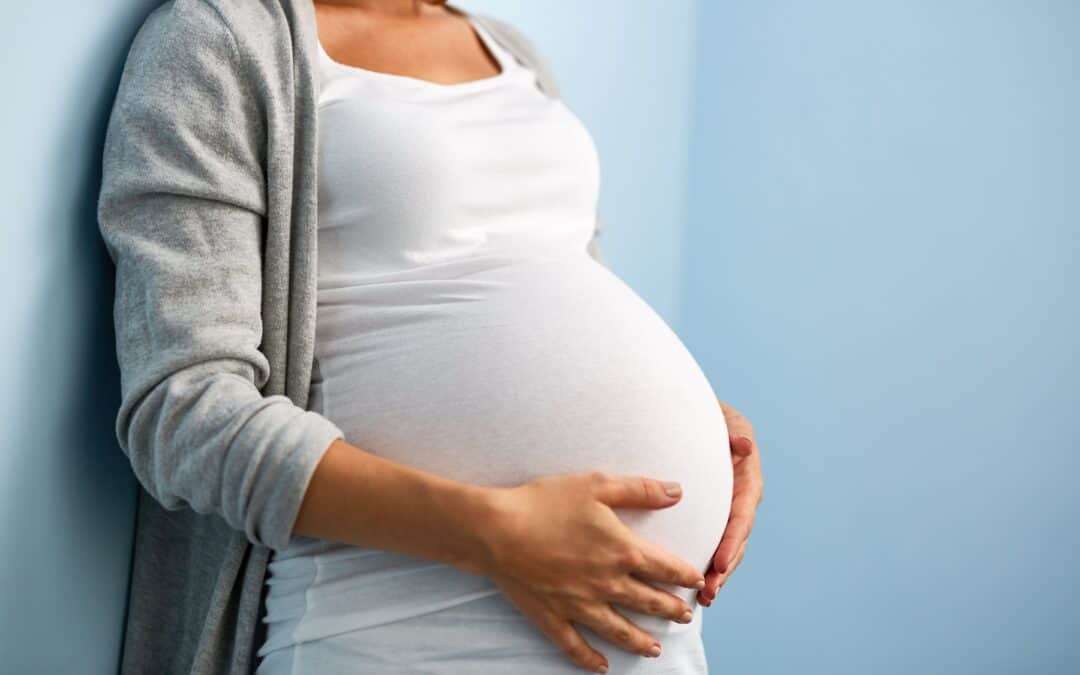Pregnant women with substance use disorder face the highest levels of stigma and misunderstanding. The unfortunate aspect of this problem is that stigma often prevents pregnant women from seeking treatment because they fear losing their child and being the victim of judgment.
For a small percentage, the importance of ending their substance use creates a sense of urgency, and they seek detox for expecting mothers. However, federal laws protect pregnant women. They dictate priority treatment when openings become available, and guarantee entrance into government treatment centers.
Addiction and Pregnancy
The Centers for Disease Control and Prevention state that one in seven pregnant women report using alcohol while pregnant. Other reports conclude that 40% of pregnant women use alcohol and at least 1 other substance.
In the government’s Substance Use Disorder in Pregnancy: Improving Outcomes for Families, factual documentation claims more than 100,000 Americans died from a drug overdose last year. In Ohio and Tennessee, overdose is the second leading cause of pregnancy-related death following the delivery of a baby.
The most common dangerous substance use disorders during pregnancy include the following in no particular order:
- Tobacco
- Polysubstance abuse
- Alcohol
- Opioids
- Marijuana
Detox for expecting mothers and following inpatient or outpatient treatment is often the most successful with gender-specific detox. Medically supervised detox with medication-assisted treatment (MAT) options is the safest detox method for a mother and her baby.
After detox, additional supervisory considerations for pain control from childbirth and medications for postpartum depression, if it occurs. Spiraling directly back into misuse, abuse, and addiction can transpire quickly. Continued treatment is the best possible path for a full recovery.
Why Pregnant Mothers Need Rehab
When looking for a center for detox for expecting mothers, inpatient rehab is an essential consideration for continued sobriety. Relapse prevention education is one of the goals for pregnant mothers to maintain sobriety and care for their children. Individual and group therapy in a supervised setting increases the chances of a successful recovery.
The welfare system is overrun with children in foster care because women relapse after the birth of their child and cannot be responsible for their care. Inpatient care after detox can add pregnancy-specific programs, prenatal medical care, and parenting classes.
Life skills workshops and job or occupational training programs are beneficial for self-support after treatment ends. Treatment centers have many resources to connect pregnant mothers and their children after birth to the community. Fortunately, aftercare programs are available to reinforce sobriety and a new lifestyle.
Is It Safe to Detox While Pregnant?
Detox for expecting mothers is more complicated than a typical detox. The substance(s) involved with the mother passes through the placenta to the fetus. Medication-assisted detox programs reduce the intensity of withdrawal effects, with buprenorphine and methadone being successful treatment options.
Without treatment, the pregnant woman with a SUD can experience high blood pressure, migraines, and seizures; the newborn baby may be born prematurely, experience low birth weight, fetal alcohol syndrome (FAS), and severe congenital disabilities.
It is imperative that detox for expecting mothers is a serious consideration. Qualified treatment centers offering safe, medically monitored detox in a comfortable setting is the best option for mother and baby. Medications can reduce the intensity of withdrawal and reduce complications. Detox before birth allows the mother to regain her strength and provide a better chance for her unborn child.
How Addiction Affects Unborn Children
Alcohol use during pregnancy increases the likelihood of miscarriage and stillbirth. Subsequently, chronic behavioral, physical, and mental disabilities present are known as fetal alcohol spectrum disorders (FASD). The Centers for Disease Control states there is no safe level of alcohol in pregnancy. The best chance for the unborn child is detox for expecting mothers to decrease the likelihood of these potential disorders.
Babies born to mothers with an alcohol use disorder can experience any of the following conditions:
- Facial deformities
- Smaller size, weight, and head size
- Coordination problems
- Hyperactive behaviors
- Attention, focus, and memory difficulties
- Speech and language delay
- Learning disabilities
- Reasoning and judgment difficulties
- Vision or hearing problems
- Heart, kidney, or brain issues
Additionally, polysubstance use can cause severe problems for the unborn baby, including the following:
- Miscarriage, stillbirth, and several lifelong congenital disabilities and developmental disabilities
- Poor fetal growth and premature birth, neonatal abstinence syndrome (NAS)
- Low birth weight
- Developmental problems/attention and learning problems
Cocaine abuse results in problems for the fetus and later in child development. This includes other stimulants such as methamphetamines, ecstasy, and other prescription drugs for ADHD, such as Adderall and Ritalin. Detox for expecting mothers is still the best option to avoid adverse symptoms and conditions.
Significant risks can occur and present with the following conditions:
- Premature rupture of membranes
- Placenta abruption
- Cardiovascular problems
- High blood pressure
- Preterm labor and birth, and miscarriage
Gender-Based Rehab for Women
Gender-based rehab is essential following detox for expecting mothers. The added support from a gender-specific program alleviates unnecessary stress from the opposite sex, who may lose patience with pregnancy-geared topics.
Expecting mothers with a substance use disorder may have experienced domestic violence, relationship dysfunctions with a male counterpart, or male-based violence. Removing discomfort, stress, and triggering possibilities in the treatment setting allows the expecting mother to concentrate on herself and her baby.
Get Hands-On Care For You and Your Unborn Child in Tennessee
Expecting mothers deciding to seek help for a substance use disorder and want to receive gender-specific detox, Detox West Tennessee offers beneficial programs. Detox for expecting mothers can be safe and effective. There is still time to detox and regain strength for the upcoming delivery.
Contact our admissions department to receive additional information and schedule an assessment to get on the road to recovery.


